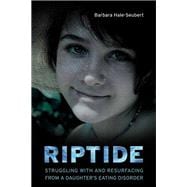
The New copy of this book will include any supplemental materials advertised. Please check the title of the book to determine if it should include any access cards, study guides, lab manuals, CDs, etc.
The Used, Rental and eBook copies of this book are not guaranteed to include any supplemental materials. Typically, only the book itself is included. This is true even if the title states it includes any access cards, study guides, lab manuals, CDs, etc.
I was used to scanning my daughter’s body for signs of deterioration, though it seemed impossible to imagine her more emaciated than she was. Functional starvation, if there was such a term, best described her condition. And now the meager flesh that remained on her ankles had been scalded a week ago when she’d dropped a pot of boiling water on the floor — undoubtedly because her arms no longer had the strength to lift it off the stove. I hadn’t realized it was quite this bad.
Erin looked up at me. “They’re just not healing as fast as they should,” she said, her tone resigned.
I glimpsed the edge of a raw open wound on one spindly leg. Erin was five feet tall and weighed about 60 pounds. How could her starving little body sustain the shock of these deep burns, much less keep her alive? Were painkillers at least softening the agony?
The burns were bad, but I could handle that. Injuries heal. It was the rest of her that, over the past decade of brutal anorexia and depression, left me limp. I felt as though I’d washed up on the beach after alternately struggling to pull my daughter to shore and trying to free myself from a stranglehold that threatened to pull me under along with her.
Close friends knew our family’s private pain, but the community at large could only guess at what was wrong when they saw Erin walk up Main Street, her skeletal frame somewhat disguised by baggy clothes, each step an obvious effort. She was a familiar sight in town. Weighed down by her ever–present tote bag stuffed with artificial sweetener packets, herbal tea, sketch pad and colored pencils, she would stop in at the espresso shop and ask for hot water for her tea, or perhaps meet an unemployed friend at Mister Donut. She identified with those whose lives were on the periphery of the 9–to–5 world. Once a gifted student, dancer, and artist, Erin now qualified for Social Security Disability benefits. Instead of anticipating graduate school or a challenging job, she hoped for an apartment in the housing program for the disabled, and underwent partial hospitalization three days a week.
We had exiled Erin to this small apartment several months after she returned from her final failed long–term treatment. She was 21, and after years of having her alternating every few months between living with her father and with me, it was intolerable for either of us to have her in our home. The chronic stealing, bingeing, and purging that ruled her life made living with her a nightmare of missing money, discarded food containers, and clogged drains. Holiday celebrations and family birthday dinners were strained by our tense, surreptitious monitoring. Would the festive meal be flushed down the toilet once again, after she’d filled her shrunken stomach with turkey, mashed potatoes, and homemade rolls? Or would we feel equally frustrated and powerless as her bony jaw chewed, trance–like, on unadorned salad and naked vegetables? She either gorged or fasted, and we’d long since learned that there was nothing we could do. The happiness and well–being of my three younger daughters helped to redeem my motherhood and cushion my despair. Yet I was Erin’s mother, too, and I feared I had failed her.
I walked across the room and sat down on the daybed, the weight of my body pulling her closer to me. Gently, I stroked her head.
“I’ve thought of so many ways to commit suicide,” she said flatly. “But each one I’ve either already tried, or known someone where it didn’t work or was even worse afterwards. I’m not going to try anymore.”
I flashed back to the night she’d swallowed half a bottle of pills. Why was she telling me this now? Did she think I would be relieved, or did she want me to know how desperate she still felt? I didn’t say anything. All my words had been used up, my heart frayed by the fear, sadness, and frustration that had consumed me for a decade. I continued to stroke her hair. That I could do.